Wildlife Economy
Investment Index (WEII)
WEII is a measure of investment potential in Africa’s wildlife economy. The big five investment opportunities are ecotourism, carbon market (including natural climate solutions), hunting (including some aspects of fishing), wildlife ranching, and forest products. Taken together, they constitute a market share of over USD 250 billion a year in Africa (See Snyman et al. 2021. Roadmap for Africa’s Wildlife Economy).
At the ALU School of Wildlife Conservation, we define the wildlife economy as per the below definition:
The Wildlife Economy uses wildlife, both plants and animals (marine and terrestrial), as an economic asset to create value that aligns with conservation objectives and delivers sustainable growth and economic development (wildlife includes indigenous, undomesticated terrestrial and marine animals, plants, and other life forms).
WEII is a measure of investment potential in Africa’s wildlife economy. The big five investment opportunities are ecotourism, carbon market (including natural climate solutions), hunting (including some aspects of fishing), wildlife ranching, and forest products. Taken together, they constitute a market share of over USD 250 billion a year in Africa (See Snyman et al. 2021. Roadmap for Africa’s Wildlife Economy).
About the WEII
The overarching ambition of the School of Wildlife Conservation's ongoing Wildlife Economy Research Project is to stimulate increased public and private investments in natural landscapes, aiming to enhance conservation outcomes and bolster economic development. An integral component of this initiative is the development of the Wildlife Economy Investment Index (WEII) for Africa. The WEII serves as a comprehensive framework, utilizing indigenous wildlife as an economic asset, aligning with conservation goals, and fostering sustainable growth. With two main Sub-Indices, the Wildlife Status Sub-Index scrutinizes a country's wildlife size and status, evaluating indicators related to assets, species richness, ecological habitats, and wildlife management effectiveness. Conversely, the Investment-enabling Environment Sub-index assesses conditions facilitating investments, considering indicators such as ease of doing business, corruption, infrastructure, and security. The WEII provides a multidimensional analysis, drawing from 280 indicators across 34 datasets.
Objectives
The primary objectives of the WEII project are as follows:
Development of an Index
Formulate an Index grounded in pertinent wildlife economy indicators, collaboratively designed with key stakeholders.
Advocacy and Awareness
Elevate the prominence of the wildlife economy to underscore its importance as a viable investment asset and promote the understanding that effective wildlife management contributes to improved economic conditions
Providing Actionable Insights
Leverage indicator scores to offer targeted recommendations for policies and practices that can unlock the untapped potential of the wildlife economy.
Fostering Competition and Improvement
Instigate a sense of competition among nations to enhance their index standings by improving factors such as wildlife management, ease of doing business, governance, and investor security.
Data and Analysis for Informed Decision-Making
Generate a comprehensive repository of data and analyses to inform and guide policy, practice, and decision-making related to the wildlife economy.
National
Reports
...
The national reports constitute an integral component of the broader Wildlife Economy Investment Index (WEII) project, contributing crucial insights at the national level. These reports outline a country's performance, delineating both areas where the nation excels and those where improvement is warranted. Serving as a comprehensive evaluation, the reports not only showcase the current status of the wildlife economy but also shed light on its dynamics, revealing both strengths and weaknesses.
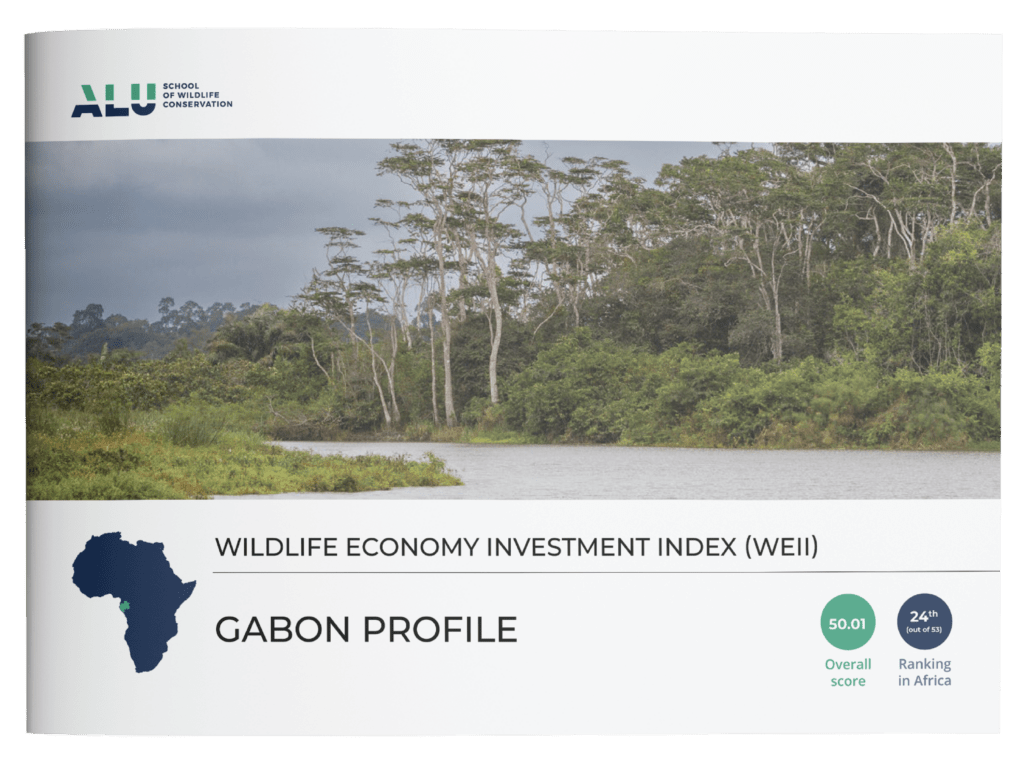
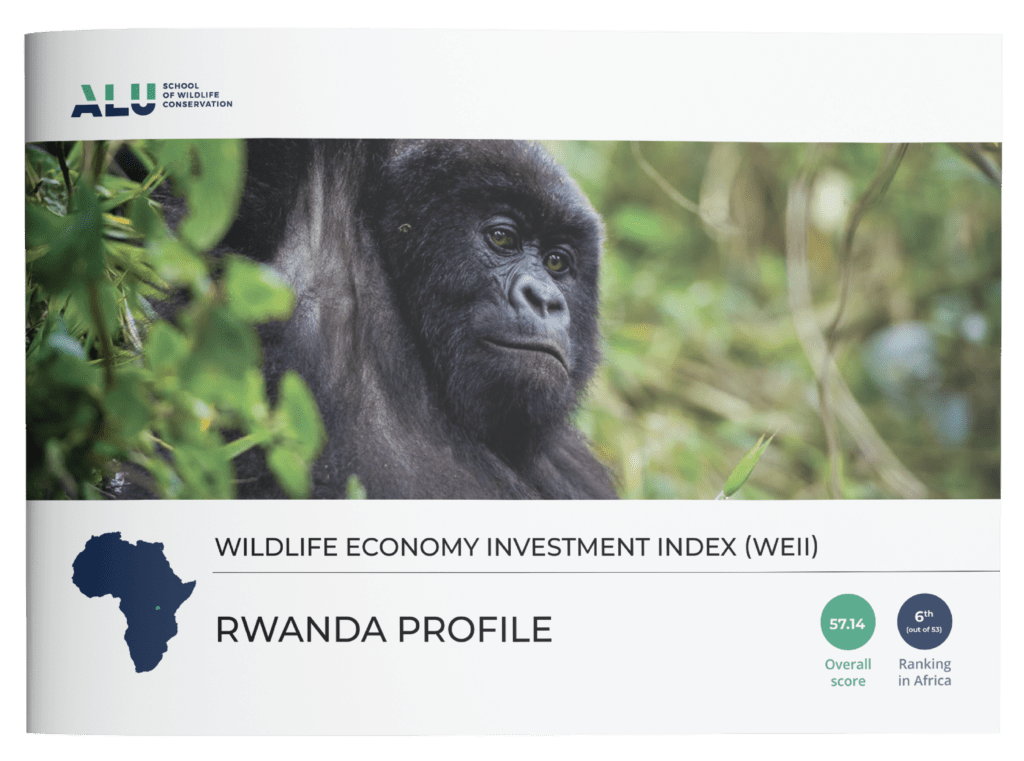
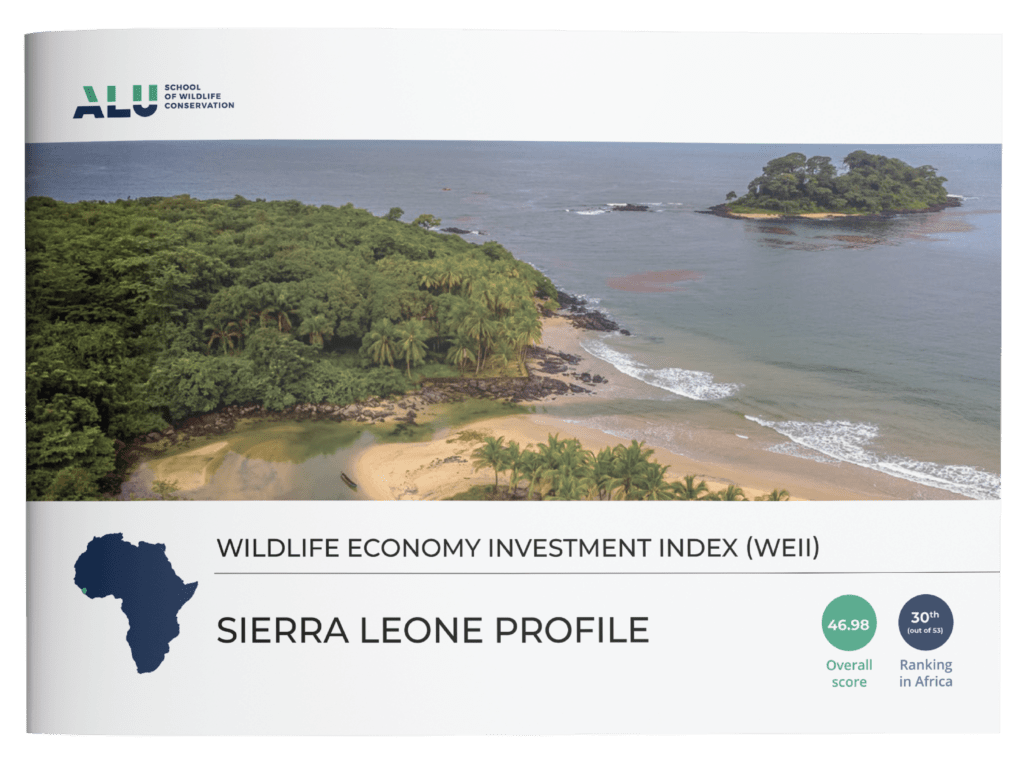
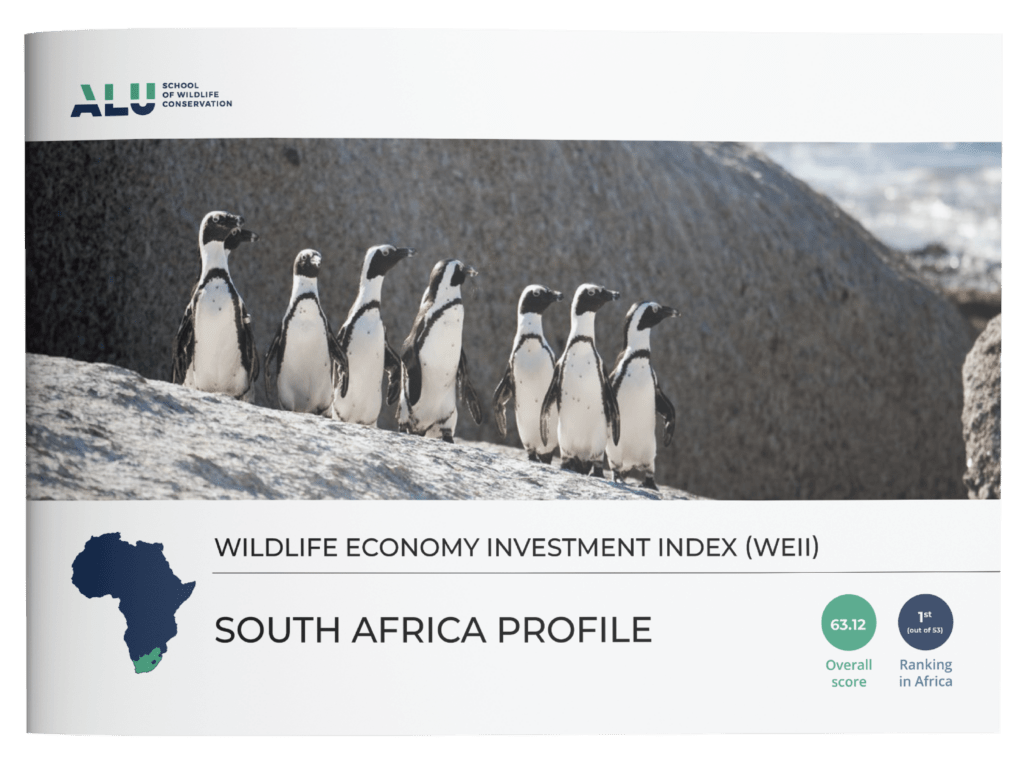
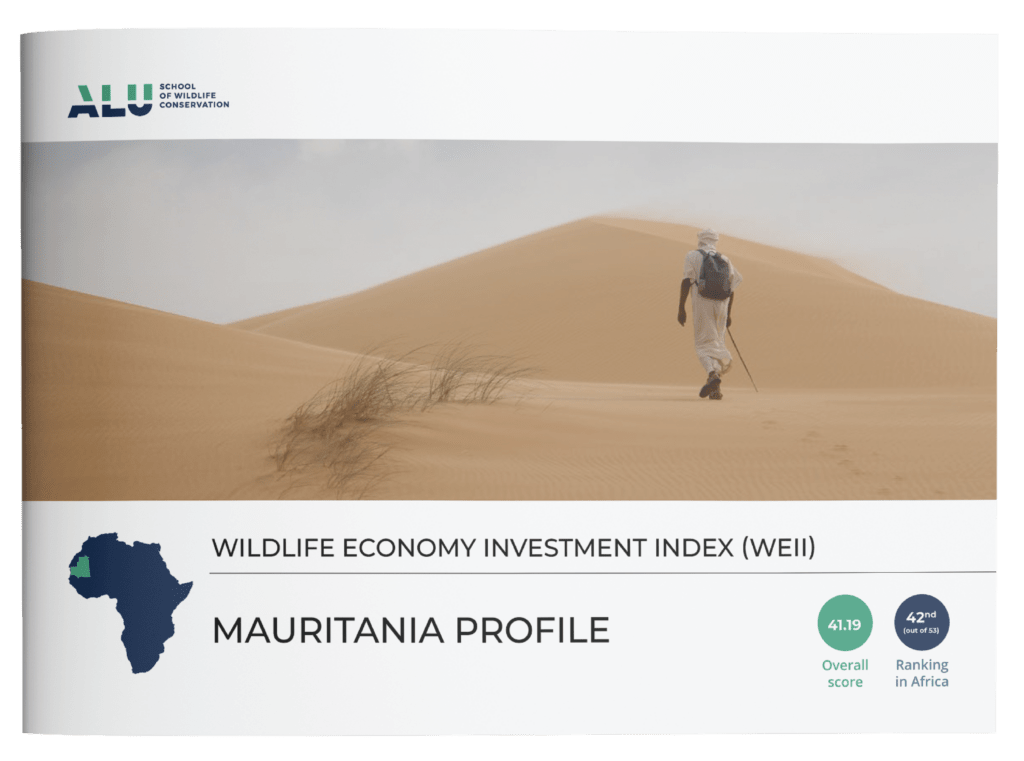
Methodology
The Wildlife Economy Investment Index (WEII) methodology drew inspiration from sources like the OECD handbook and other global indexes. It was developed through four key stages
- The first stage involved establishing the rationale for the index through research, expert consultations, and analysis of existing economic indices. This stage identified the need for a comprehensive tool to measure wildlife economy investment potential.
- The second stage focused on identifying core domains (categories) that encompass the drivers of wildlife economy investment, such as wildlife assets, management, ease of doing business, public sector capacity, and investment safety. These categories were grouped into two overarching themes: Wildlife Status and Investment-enabling Environment, forming sub-indices of the WEII.
- The third stage involved selecting specific indicators to represent each category, with an emphasis on reliable and relevant data sources. These indicators were organized into sub-categories based on commonalities and distinctions, considering data definitions and sources to avoid misclassification and redundancy.
- The final stage calculated scores based on the indicators' raw data, using statistical normalization to ensure aggregating indicators with different units. Throughout the development process, stakeholders from governmental, non-governmental, and private agencies provided feedback and inputs in workshops. Their contributions significantly influenced the final WEII, ensuring its credibility and validity as a reliable tool for policymakers, researchers, and conservationists in the wildlife economy.
For inquiries related to the WEII project, you may reach out to: Dr. Sue Snyman

About SOWC
The ALU School of Wildlife Conservation is the first of its kind on the continent, dedicated to growing the next generation of world class conservation leaders in Africa.
The continent needs home grown African leaders to spearhead new and innovative approaches in the business of conservation.
Useful Links
Contact
ALU School of Wildlife Conservation
Bumbogo, Kigali Innovation City, Next to Azam, Kigali, Rwanda
Phone: +250 784 650 219
sowc@alueducation.com
© All rights reserved